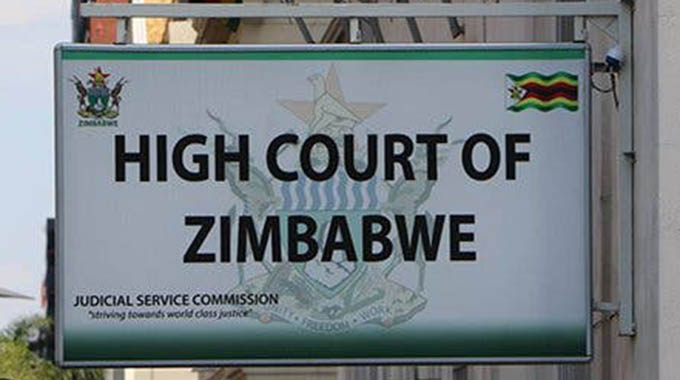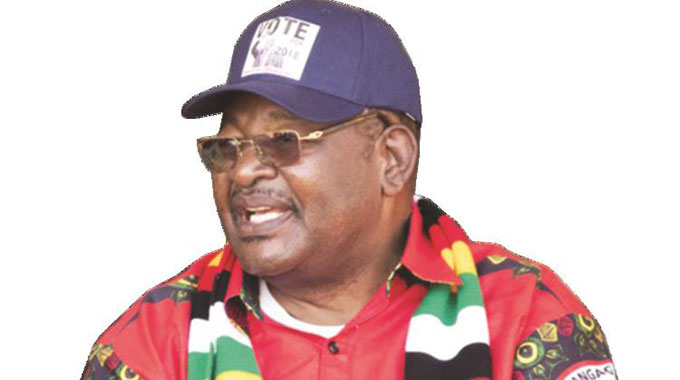Editorial Comment: Effective action needed to tame black market

The foreign currency black market in Zimbabwe can be a major nuisance, and can, as it has done in the past, distort economic dealings and open opportunities for those who wish to manipulate exchange rates for private gain.
So the appeal by the Minister of Finance, Economic Development and Investment Promotion Mthuli Ncube for law enforcement agencies to rein in the illegal trading is understandable, with the police already stating they will be active. We assume the Financial Intelligence Unit of the Reserve Bank of Zimbabwe will be playing a major role as well, although it tends to eschew publicity.
There is need not just to put pressure on the dealers within that market, but also to remove the tendency for Zimbabweans to use the market instead of the commercial banks, who now operate and run the legal market in its entirety. Reserve Bank Governor Dr John Mushayavanhu has already told importers that the foreign currency reserves are adequate so that no business needs to resort to the black market.
What is also needed is to remove the mystique that the selling price of a US dollar by the most expensive dealer, a number that gets called the “parallel rate” by a lot of people who should know better, and then this number is elevated into something that they state reflects the true value of the Zimbabwean currency.
There is no single black market, each dealer and trader being effectively on their own and between them offering a range of rates. They also demand a very high margin between what they pay when they buy US dollar banknotes and what they demand when they sell the same notes, 25 to 35 percent being typical.
The legal market, now run by the commercial banks, does generate the daily weighted average of their exchange rates, the interbank rate, so there is market pressure on each bank to ensure its own rates are close to that average. Banks are now charging margins of under 7 percent between their bid and ask rates, a significant drop from the 10 percent of a few months ago but still with some way to go to reach global norms.
The combination of the wide range of rates by black market dealers, and their huge margins, produce the first distortion when people state with some degree of misplaced certainty, what they reckon the “parallel” rate is. What they actually announce is the selling price of a US dollar by the most expensive dealer.
This is then compared with the interbank rate, which is the mid point between the weighted averages of the rates commercial banks use to buy and sell foreign currency. So for a start we are comparing a selling price with a mid-rate, and secondly while taking the average of what banks deal at, we take the most expansive black market dealer when stating the “parallel rate”. If we took the bid rates, what banks and dealers buy foreign currency for, we would see trivial premiums.
The black market is not the major currency market in Zimbabwe, being dwarfed by the commercial banks, but that does not mean the authorities should not ratchet up the pressure and make it even smaller and less important, which is what a blitz on the market will do. It will probably be impossible to eliminate the black market, but once fines and other disincentives are being applied, the market becomes smaller automatically as it becomes far less profitable.
Both the police and Financial Intelligence Unit will face problems proving an illegal trade. Unlike the blitzes against illegal drugs and the illegal sales of ivory and other wildlife products deriving from endangered species, having piles of foreign currency and local currency is not illegal. So there can be no arrests for possession, the most common charge when going after drug and ivory dealers. So the police will have to gather evidence before arrest.
Observing and recording street deals will be almost essential, plus the police pretending to be buyers although once again there will need to be recordings plus the police officers being used will have to be very careful not to breach court rules on enticement to commit crimes.
Here the reintroduction of bank notes could be a help. Although the largest note, the ZiG200, is only worth just under US$15, we can expect some black market dealers to have wads of them, being fed by unscrupulous business people and slack commercial banks if past experience is a guide, and waving these around in the middle of the pavement will be a dead give away.
Otherwise the introduction of ZiG banknotes will help the black market, by making transactions anonymous cash-to-cash deals. So the Reserve Bank will need to work with the commercial banks on setting withdrawal limits and even cash transaction limits so banknotes remain what they are supposed to be, a convenience for very small transactions rather than a way of transferring large sums.
But while pressure on pavement dealing will be useful, the main pressure needs to be on the higher levels in the black market, those who deal in the larger sums. Here it should be possible to go easy on some street dealers so long as they turn in the wholesale dealer who finances and uses them.
In straight electronic dealing, the FIU must play a major role, although once again we will probably need legal civil penalties since proving criminal transactions is so hard, while civil penalties just need a transaction to be probably illegal, rather than proved to be illegal beyond reasonable doubt.
The FIU has in the past been a major factor in smashing black-market rings and bringing the major dealers to book, and it must be used again in this role. Generally speaking it is in these higher levels that the main damage is done, rather than at the street level, although cleaning up the streets should not be neglected.
While eliminating the black market is probably impossible, building up the pressure on illegal dealing and making such deals more expensive as fines and penalties have to be factored in, will make it ever more difficult and less profitable, so fewer people are involved and it can wither.










Comments